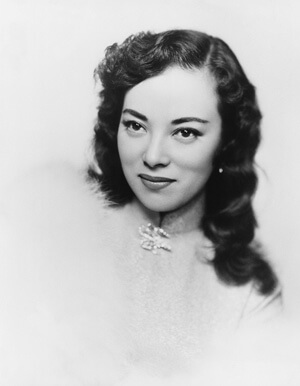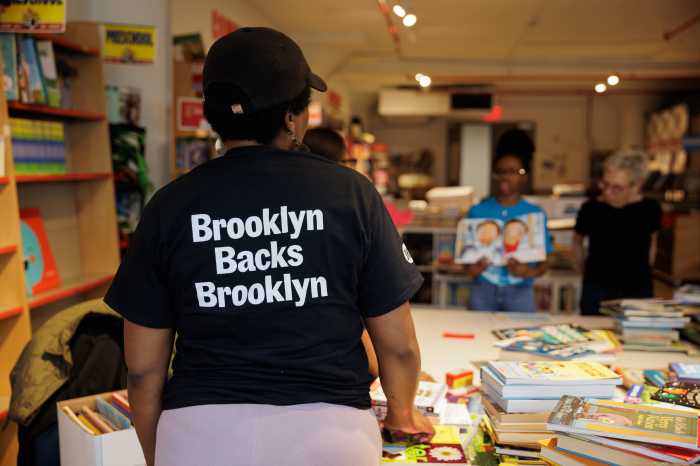Bettye LaVette appears at the Café Carlyle January 27-February 7. | CAROL FREIDMAN
There are damn few singers today as purely exciting as Bettye LaVette, who has a new CD out, “Worthy,” and is about to wow the Upper East Side at the Café Carlyle, January 27 to February 7. Her sinuous, searingly involved huge talent aside, I became particularly enthralled with her after reading her jaw-droppingly honest memoir, “A Woman Like Me.”
Among the more colorful tidbits: her working briefly as a prostitute, a career that ended up with her being dangled by her pimp in her underwear from the 20th story of a building on Amsterdam and 78th ; affairs she had with Aretha Franklin’s husband, as well as Otis Redding and Ben E. King; and how it was actually Tina Turner’s choice to stay with Ike to see what she could learn from his beatings.
Professionally, LaVette went through endlessly frustrating and heartbreaking career non-starts and disappointments, which would have made anyone else throw in the towel — but now make her happily employed state all the more sweet.
After a high-low-low life, Bettye LaVette takes up residence at the Carlyle
“You’re my fifth interview of the day,” were her opening words in our phone interview. “I’m just sitting here in West Orange, New Jersey, smoking a joint, looking out the window at the snow, and sipping on champagne. It’s not so bad.”
After a life that could, with understatement, be described as “turbulent,” I asked LaVette if she could ever have seen herself sitting up in Jersey, with four cats, blissfully married to Kevin Kiley, an antique dealer.
“I certainly didn’t… but, yes, I married this record historian who knows more about me musically than I know myself. He sent me his first email years ago when he heard I was about to make a record, saying, ‘I’ve been a fan of yours for 11 years and wanted you to know I don’t want this producer to do it with you. He doesn’t know what to do with you.’
“So I sent him a message back: ‘First off, do you have any money to take me into the studio? Do you know how long it’s been since I’ve been in a studio?’
“I didn’t sign with that producer and when ‘A Woman Like Me’ was coming out, he sent me a message saying, ‘I’m so glad you did that. I’m an antique dealer doing a show in Detroit and I’d like to take you out to dinner and apologize for being so forward.’
“And he completely saved my life both in and out of bed!”
LaVette is now enjoying more success than she’s ever had.
“I’m so happy now with the things people like yourself are saying about me,” she told me. “All my life I’ve wanted to be in those conversations about my contemporaries — who’s the greatest singer — because my name never came up in those and I’m just thrilled about that. I am glad to be still so strong and vital and given the respect of being an older artist, but I’m being dealt with as a new discovery! This gives me a different route from my contemporaries who may now be has-beens, but I’m an old never-was, kind of unique. I’ve denied the word ‘comeback’ because I haven’t been anywhere. I was working for 50 bucks a night and now I’m working for more, but I never worked in a hospital or joined a church or lived in my car. I’ve been the same drunk broad, singing for all this time.”
LaVette is over the moon about her new CD: “I love this album so much. The title of it is ‘Worthy.’ I just thought that that sounded like such a haughty claim, so I didn’t want my picture on the album and didn’t want the name to be big. Very small, and even in singing the title song I didn’t want to sing it loud and kept the background very simple. I didn’t want to be patting myself on the back or beating my chest.”
Although her name may still be a bit obscure to some, I recall LaVette from the Golden Age of Disco when her song “Doing the Best That I Can” was one of the absolute 5 a.m. anthems of the Paradise Garage.
“That was my first and only time, performing in a huge gay club. My husband found this invite for it, the ‘Fire Down Below’ party, with this drawing of two guys with flames all around them, reaching for each other’s dicks.
“I’m a singer, not a disco queen or a dancer. I had recorded that song for the words and had never heard the disco production they put under it, which I hated. So when I came out on stage that night, I didn’t know where they put my voice arrangement or where to come in. But everyone in the club knew the words and were singing it, so I just sang along with all you guys! I didn’t know the thing was even selling. I was just stunned — and do you know it wound up being in the top 10 of the 100 disco songs?
“We left the club, and Mel Cheren and the other white gay guys from West End Records took me out to Fire Island for the first time, and oh my God, we had the greatest time in the world. We were there until mimosa time the next day. I will never forget the night or the outfit that I wore: this sheer pink thing and I wore a nude bodysuit under it. They told me it was a gay affair and I wanted to be gay.”
That was at the height of the party years, just before AIDS: “I recorded the Springsteen song ‘The Streets of Philadelphia,’ and when I sing it at the Carlyle, I explain that I never knew I would be in the theater, which I did when I was in ‘Bubbling Brown Sugar’ on Broadway. So, just from that, I probably know more gay men than any other R&B singer in the world. And now, everybody is dead, also my former husband, a gorgeous college graduate who got strung out on crack. Originally, I was like, ‘I can’t sing no Bruce Springsteen song,’ but the words sound like they were written for all of my friends and husband and I almost cry thinking about it. I always thought gay men were better women than women, all the things women should be, they embraced.”
In her book, LaVette is also quite open about her own bisexuality, namely, her affair with the irresistible Marrie Early.
“Yeah, if you look at the whole book, not only was I bi, I was everything else. Gay men are still more attractive to me than the average man, and gay women are still attracted to me. That was one of the many things I did, but I have to say I find women annoying, if anything. That’s why it’s so hard for me to have girlfriends. All my friends are guys because I don’t act the way the average woman does. There are some really masculine things about me because my father and I were so close and I assumed his attitude.
“My grandson is the first boy in our family in 100 years and I just adore him. I sat at edge of his bed when he turned 16 and I said, ‘Your grandmother smokes marijuana on a regular basis. I know you know what it smells like, but you can’t smoke it because you got tests to take. You can’t remember if you smoke marijuana.’ So now he’ll be 30 this year and I got him a job at the City Winery. He’ll come over and smoke joints and eat chitlins with me on Monday.
“l never lied to or stolen anything from anyone, or tried to get over or cheat anyone. I’ve certainly done things I’d never do again but nothing I’m ashamed of. I don’t have any fantasies I’ve never acted out. The only thing I’ve ever imagined that I haven’t done is having money, but I’ve got this wonderful husband who’s absolutely insane and he’s all the things that I’m not.
LaVette not only sounds but looks terrific today.
“Oh shit, I’m glad I can still fit in my clothes but I’m keeping my body hidden. When Motown [who never actually signed her] was stupid enough to give me an award, I was the only person there who was a size six and I acted badly. When [songwriter] Mickey Stevenson gave me the award, I said, ‘I have no idea why they did this. I tried all kinds of avenues to get into Motown when I was in Detroit, when Mickey first started practicing being Berry Gordy. I’ve known these three guys [composers] Holland, Dozier, and Holland [who also got an award] for so long, and it would be too embarrassing to say what I’ve offered for them to produce me. And this gentleman, Berry Gordy, I actually know people to whom he still owes 10 or 20 dollars when he worked with them on the line at Chrysler! That’s how close I am with my city.’
“Every award winner sang a song with this three-piece band and I said, ‘I don’t need the band.’ I sang Sinead O’Connor’s ‘I Do Not Want What I Haven’t Got,’ picked up my award and my husband off the floor, and sat down, while Janie Bradford was whispering in Berry’s ear, ‘I’m sorry! I’m sorry! I didn’t know she was gonna say that!’”
One eye-opening story in LaVette’s book was the night Brian Holland’s wife showed up at a club to confront Diana Ross about the affair she said Ross was having with her husband. The encounter left the singer not only beaten up, but “America’s Supreme sweetheart was left standing in her slip, panties, and bra.”: “You know, when Martha Reeves wrote her book, I was excited because we had hung together all these years and recited that story to each other a thousand times. It wasn’t in her book and when I recently worked with her, she said, ‘I don’t know what you’re talking about.’ I felt like an idiot, but that is what we talked about — Diana’s fucking her way to the top.
“Now I don’t know that she did that, but that’s what we thought and said [Ross did have a child by Berry Gordy], and I know it was Smokey [Robinson] that brought over all the cute girls for the cute guys, who told them, ‘I’d like for you to sing for me,’ although they didn’t with me. Whenever my little shit would fall apart at the other companies, I would run back over to Motown and be mad at them because they wouldn’t sign me. But maybe they were right because I would have caused a lot of trouble for them and acted the way I did at the awards show. But I do know that one of Smokey’s main problems with [his wife] Claudette was that he fucked everybody he met.”
“I recently made a statement on my Facebook page about Diana and Mary Wilson that ‘I’ve never seen any one of you muthafuckas pregnant. Why is that?’ A friend of mine sent me pictures of Diana pregnant with her kids but I’d never seen her pregnant and I don’t think anybody in Detroit has. I was going around saying that that was Berry’s baby, and people said, ‘You just sayin’ that cuz you ain’t as big as she is.’ No, I’m saying it cuz I’m from Detroit, a small community, and at some point all the blacks were together, as you white people all think we are!”
While many of her contemporaries are wheezing out their songs with difficulty, LaVette’s musicality remains seemingly effortless and strong: “When I was young I wanted to sound like Doris Day or Judy Garland, wanted everything to be clear. My manager sent me to vocal lessons, which helped me learn how I do sound and how to work with that as opposed to how I want to sound. I pretty much sound like Ray Charles or James Brown, and when I vocalize it’s just to make sure the sound comes out and I can get as many lows or as many highs as I can go — and that’s not really that high.
“When I was doing the presidential inauguration with Renee Fleming, we were harmonizing on the side to everybody else singing, standing on little heated footpads, and she was just wonderful. On ‘My Girl,’ I said, ‘No, you gotta come down,’ and I kept bringing her down to where it was. We just had the greatest fun, singing background for everybody who didn’t know it was Renee Fleming singing backup.
“She’s got a great voice and body in terms of being able to handle the strong physical activity, which people don’t realize is needed. When you sing like me you have to be as strong as Otis Redding, and I’m half his size. When I come off stage it’s like coming out of a fight, I feel like somebody’s been kicking me.”
Asked about meeting President Obama, LaVette said, “I told him, ‘You’re absoluely perfect and do you know you’re the same age as my career?’ That tickled him and he laughed. I wanted to say something really insightful and intellectual to Michelle, but I was crying through the whole thing, and we held hands. I said, ‘You know.’ And she said, ‘I know you know.’ And I said, ‘I know you know I know.’ That was all I said, and I told my husband later I felt like an idiot.”



































